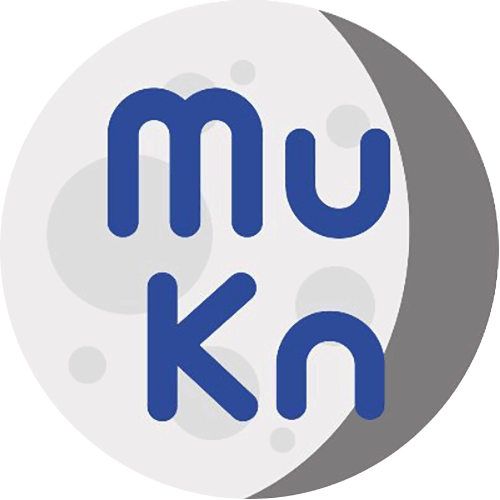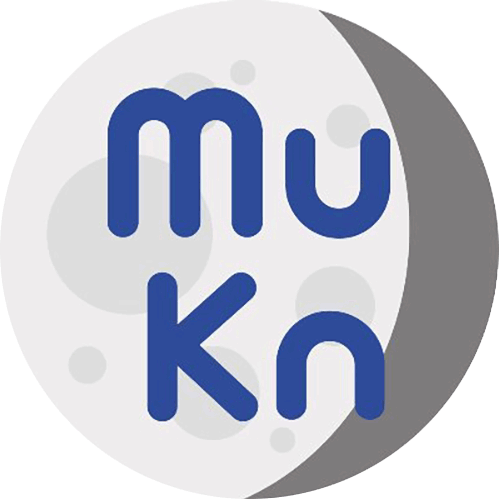Mukn Launches Web3 Enabler for Crypto Payments in Salesforce
One of the biggest barriers to the enterprise adoption of blockchain is the lack of integration between blockchain-based workflows and the traditional back-office systems (financials, ERP, CRM, etc.) that companies depend on to run their businesses. Without such integrations with some of the more commonly used back-office platforms, blockchain-based workflows are practically rogue in the way they escape an organization's technological control points for business process standards governance.
At a blockchain meetup in Cambridge, MA, Blockchain Journal editor-in-chief David Berlind caught up with Mukn (pronounced "moon") CEO Alex Smart claimed that his company's offering – Web3 Enabler – is the first plug-in to integrate an organization's blockchain and cryptocurrency workflows with its existing customer relationship management (CRM) processes as they exist in Salesforce.com. According to Smart, Web3 Enabler is the only offering of its kind that's also available through Salesforce's AppExchange, the Salesforce-operated marketplace where customers of Salesforce can shop for and activate third-party add-ons to their Salesforce deployments.
Mukn's Web3 Enabler is one of a growing list of solutions that target enterprise back-office integrations with blockchain. Others include Bitwave, which focuses on bridging blockchain and cryptocurrency workflows to existing financial systems like Netsuite and SAP's Digital Currency Hub, which looks to cross the gap between those same workflows and SAP's portfolio of enterprise resource planning (ERP) solutions. One of the big advantages of Web3 Enabler, according to Smart, is how an organization's Salesforce workflows for existing fiat currencies are easily applied to cryptocurrency payments without the need for major changes or team training.
(The full-text transcript appears below.)
Published:September 28, 2023

8 min read
Audio-Only Podcast


Full-text transcript of David Berlind's Interview with Alex Smart, CEO of Mukn Inc.
David Berlind: I'm David Berlind, editor-in-chief of Blockchain Journal. Today is September 14th, 2023, and I'm coming to you from Cambridge, Massachusetts, where there's a Web3 event taking place, and I've had an opportunity to network with Alex Smart. Alex, you are the CEO of a company called Mukn Inc., right?
Alex Smart: That's correct, David. It's a pleasure to be here.
Berlind: Yeah, thanks for joining us on the show. So Mukn Inc. First of all, let's go over the spelling because it's not spelled the way you would think it is. I'm thinking M-O-O-N, but it's not that, so...
Smart: That's absolutely right. So Mukn is, we spell it M-U-K-N. It's short for mutual knowledge, and it's part of our philosophy and thought about blockchain Web3 technology, is these ideas of mutual knowledge being in a helpful way and a helpful piece of what the space can do and create.
Berlind: Okay, so you guys have been around for how long and where are you based?
Smart: So we are a fully decentralized team. We're spread all over, but we are formally organized in Delaware, and our headquarters are in Miami, but I'm based here in Boston, and our team's all over the place.
Berlind: Spread out just like Blockchain Journal is because all of our people are scattered around the world. So you're here for this event. You're going to speak about what it is Mukn Inc. does. It's enterprisy, which is what Blockchain Journal likes to cover. So why don't you talk a little bit about what your goals are?
Smart: Absolutely. So, I'm here today to talk about Mukn and our newest project. So Mukn is a startup studio, and our recent launch is called Web3 Enabler. it is a company, and it's an app that is available now in the Salesforce AppExchange that enables Salesforce companies to make and receive payments using cryptocurrency.
Berlind: For those people who don't know what Salesforce is, let's start there. What's Salesforce?
Smart: All right, Salesforce is the largest Customer Relationship Management software provider in the world, and they have a huge proportion of the market. I think it's... the slides in my deck, but off the top of my head, 22.6%, but it's multiples of the closest competition. Their marketplace is a $44 billion a year market, and it is used by a huge number of enterprises around the world to manage their relationships with their customers.
Berlind: Then you mentioned AppExchange, so that's probably something that's part of Salesforce. Let's talk about what that is.
Smart: Absolutely. So, like a lot of other software platforms, Salesforce has apps that you can use to add certain functionalities into your system. So, if you're selling cars and you use Salesforce, you can use things to track VINs or whatever. And what we are providing is a way for companies that are using Salesforce to add the ability to, like I said, make and receive payments with cryptocurrencies in their Salesforce instances.
Berlind: So AppExchange is basically a marketplace where the customers of Salesforce can go and enhance their Salesforce by plugging in software and other solutions from third parties like Mukn Inc. And you're providing some sort of plugin that helps them manage their cryptocurrency payment.
Smart: That's exactly right. So you can go into their AppExchange just like you would Apple's App store, and you can add things to your Salesforce that are useful and helpful to your company and our app, Web3 Enabler, allows companies to add the ability to make and receive payments with cryptocurrency.
Berlind: There are other companies out there that are on the market that are already helping small companies [and] enterprises manage their cryptocurrency payments if they so choose. Not every company takes cryptocurrencies, but the ones that have decided to do that, and there are quite a few in the enterprise space, global brands, they are turning to some of these other solutions. What sets Mukn Inc. apart from those?
Smart: That's a great question, David. I think there are really a couple of things that set us apart. One is that the way we've been able to implement this in Salesforce means that companies don't have to train their entire team on Web3 technology and wallets. It works natively in Salesforce. It's as easy as clicking that you want to do a transaction in Canadian dollars, for example, instead of US dollars.
And the other one that we are proud of is, our roots are deep in blockchain technology and decentralized systems. And also as a lawyer by training, I'm happy with this as well. We don't actually handle the payments ourselves. We enable the Salesforce companies to connect directly with their customers and interact directly peer-to-peer to do these sales. We just observe the wallets and see that the transactions are made and can connect those to invoicing and other payment structures. So we keep that part of the Web3 ethos of you controlling the keys tightly and keeping those where you want them secured, not having to hand that over inappropriately, and have it so that your sales team doesn't have to become experts in security and encryption. They can just do their jobs the way they always have, but they have these other payment channels available.
Berlind: This is actually an evolving space right now in the blockchain industry because if you look around, you'll see a variety of providers getting involved in the integration of blockchain as a financial rail with existing enterprise back office systems. So, I'm thinking of the way SAP just recently launched Digital Currency Hub to bridge blockchain activity into the SAP ERP systems and their other back office systems. Bitwave also integrates with back-office systems like NetSuite. We interviewed them earlier this year, and so basically, what we're seeing now is this kind of necessary step in the evolution of the blockchain industry where this activity, cryptocurrency transactions, blockchain activity, has been living somewhat separate from the enterprise back-office systems. Now we're starting to see that connectivity show up and bring it in. So, whereas those companies have decided to work with somebody like a NetSuite or a back office accounting system or ERP, you guys are working with CRM. Why did you make that choice?
Smart: That's a great question. The reason we wanted to go with CRM has... there's a couple of pieces to it. First, we think that the CRM space is one where there are a lot of use cases that are helped out by this, but another piece of it that we like is that... as I mentioned earlier, I'm a lawyer by training and so –
Berlind: I'm sorry to hear that, but go ahead. We won't hold that against you. (Laughter)
Smart: I often describe myself as a recovering lawyer for that very reason.
Berlind: By the way, it's an interesting time to be a lawyer. Because of all of the shifting landscape on the regulatory front, you have to be a lawyer to kind of make sense of it and know how to adjust your company's strategy according to that.
Smart: Absolutely, and that's actually one of the reasons that CRM is the right place for us, right? We wanted to be in CRM because with the shifting standards and accounting and guidance and even legal rules around what is acceptable and not, we are able to build a lot of flexibility for our customers in, and we don't have to make those decisions while the policies are still so unsettled. Some of the other systems, ERP systems, and some of those things, are more demanding of the policy decisions, are forcing policy decisions to be made already, and if that's a strategy they can adopt, that's fine. But we wanted to be able to maintain the flexibility, and we expect that as regulation comes further along and matures, a lot of these standards are going to start shaping out, and you're going to start seeing norms adopted.
It wasn't at the first day The New York Stock Exchange opened that pricing at the closing bell of the stock exchange became a standard. That evolved over time, and we've got these new markets that are open all the time. And how do you set [the] price? Which market? Which exchange do you go with? Decentralized, centralized? How do you pick a time... there's a whole bunch of policy decisions to be made there, too many for us to be making for our customers. They're the ones who are best suited to know what kind of transactions they're undertaking and what they need from their accounting to appropriately report what they need to.
Berlind: To help an existing Salesforce customer understand exactly what the workflow looks like, what's an example of something that they are doing with Salesforce today where they might acquire your solution, and then how does their workflow change as a result of having your solution in their workflow? What are the steps here?
Smart: One of the things I'm most proud about with Web3 Enabler is that their workflow doesn't change very much at all. Essentially, they're able to integrate into the workflow that they would already use. So, just the same way that your people might be used to sharing a QR code or a bank account number, we are able to have the wallet connected into your Salesforce instance in such a way that they click a link, a QR code comes, they can send that to the customer, the customer connects that to their wallet and they're ready to go. And it's really as simple as toggling a couple of links for the salesperson to say, "Oh, which currency am I going to use? I choose that one," and then everything else is automatic. It's one of my favorite parts of our demo is how anti-climactic it is for Salesforce people. They look at it like, "Well, it just looks like a transaction." "Yes, that's the whole point. It just looks like a regular transaction."
Berlind: Okay. Well, Alex Smart, CEO of Mukn Inc., thanks very much for joining us here on the Blockchain Journal podcast.
Smart: Thanks so much, David. It's been great to be here.













